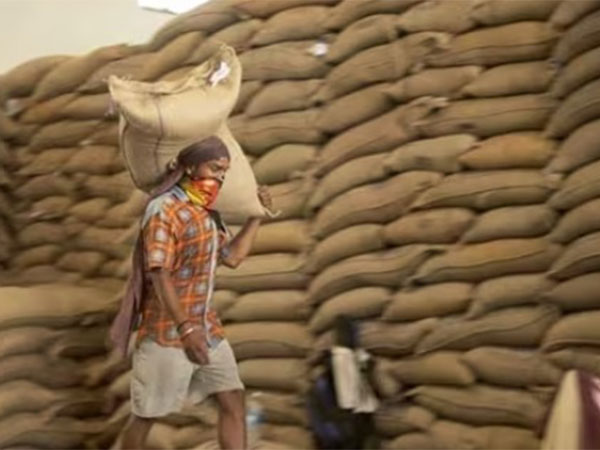Centre imposes stock limits on tur, urad dals to prevent hoarding, speculation
New Delhi [India], June 3 (ANI): The Centre has imposed stock limits on tur dal and urad dal to prevent hoarding and unscrupulous speculation and also to improve affordability.

According to the ministry of consumer affairs, food and public distribution, these stock limits on the pulses are applicable to wholesalers, retailers, big chain retailers, millers and importers with immediate effect and will applicable till October 31 this year.
Under this order of Removal of Licensing Requirements, Stock Limits and Movement Restrictions on Specified Foodstuffs (Amendment) Order, 2023, stock limits for all states and Union Territories.
According to the statement released on Friday night, stock limits applicable to each of the pulse individually will be 200 MT for wholesalers; 5 MT for retailers; 5 MT at each retail outlet and 200 MT at depot for big chain retailers; last three months of production or 25 per cent of annual installed capacity, whichever is higher, for the millers. In respect of importers, the importers are not to hold imported stock beyond 30 days from the date of customs clearance, according to the order.
According to the statement, the respective legal entities are to declare the stock position on the portal of the department of consumer affairs and in case the stocks held by them are higher than the prescribed limits then, they shall bring the same to the prescribed stock limits within 30 days of issue of the notification.
The ministry in the statement said the imposition of stock limits on tur and urad is another step in the consistent efforts taken by the government to crack down on the prices of essential commodities. The department of consumer affairs had been closely monitoring the stock position of tur and urad through stock disclosure portal which has been reviewed on a weekly basis with the state government.
Extensive interactions with various stakeholders such as importers, millers, and retailers had been held to ensure disclosure of stocks, including visits by senior officers to the states of Karnataka, Madhya Pradesh, Maharashtra and Tamil Nadu to assess the ground situation, according to the ministry’s statement.






